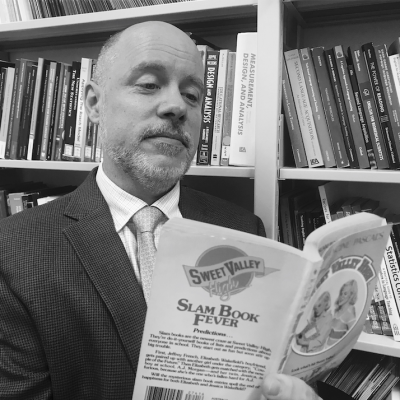Sessions / Zoom E

Better than Book Whispering - Young Learners & ER #124
Book whispering is a method teachers employ to recommend books to students for the purpose of motivating them to engage in extensive reading (Miller, 2010). This method entails teachers recommending books to students based on questionnaire results about their preferences. Miller popularized this method in her best-selling book, the Book Whisperer, and claimed her sixth grade students in Texas read 40 novels a year because of it. While the idea of book whispering is popular in the ER community, there is no evidence of its effectiveness with EFL young learners. The presenter will show results of an action research project conducted in an eikaiwa school in Japan, which showed that autonomy in choosing books for ER was very important to them. Students overwhelmingly responded negatively to having the teacher directly recommend books, which lead the presenter to abandon the initial plan to implement book whispering in classes. It was found that an indirect recommendation method called Teacher Read Alouds, where the teacher read aloud the first book in a series or the first chapter of a novel in a series and then made the series available for students to borrow, was received very positively. Analysis of book borrowing data show that students often borrowed books in the series read aloud by the teacher.

Students’ perspectives of peer support in reading classes #191
Do all students like reading classes? If not, what reading activities can teachers do to guide them in reading? It is natural for students who have a certain English competence to read through textbooks or extensive reading books actively, but is not easy for other students who have negative feelings toward reading. To solve this gap, group textbook reading activities are effective to use the power of peer support in classrooms. Especially, some students who are positive, can play significant roles to support other students who lack energy in group activities. In addition, students did extensive reading activities at their home and book-talk in classes regularly, so they gradually got used to read stories by themselves to describe the book contents and characters. Overwhelmingly negative attitudes which some students showed at the beginning disappeared in the classrooms. At the end of the semester, the students stated that they held self-esteem while participating in the reading classes on their self-evaluation sheets as formative assessment. This presentation is practice-oriented and explains the correlation between effective reading activities with peer support and students’ perspectives are taken from questionnaire and interviews.







ER SIG forum #126
Conducting classroom-based research on extensive reading allows language teachers to contribute to knowledge about a valuable approach to language learning; however, a strong understanding of research methodology is essential to execute meaningful studies. Greg Sholdt reports on a unique professional development project that helps language teachers gain skills and knowledge related to conducting quantitative research. He provides an overview of the project and explains benefits of this approach to professional development. Following the presentation, Pat Conaway will lead a discussion on how the ER SIG can replicate the project framework to increase the opportunities to conduct research and raise its quality.
While results from research can support using ER in the classroom, It is also important for teachers to get their students interested in extensive reading with engaging classroom activities. The final part of the seminar will be a slam session in which teachers will have a maximum of five minutes to explain a successful ER activity they have used: Making picture dictionaries, Reader's theater, Pattern seekers - teaching and testing scanning, the Extensive Reading Foundation placement test, and using the V-Check level test.